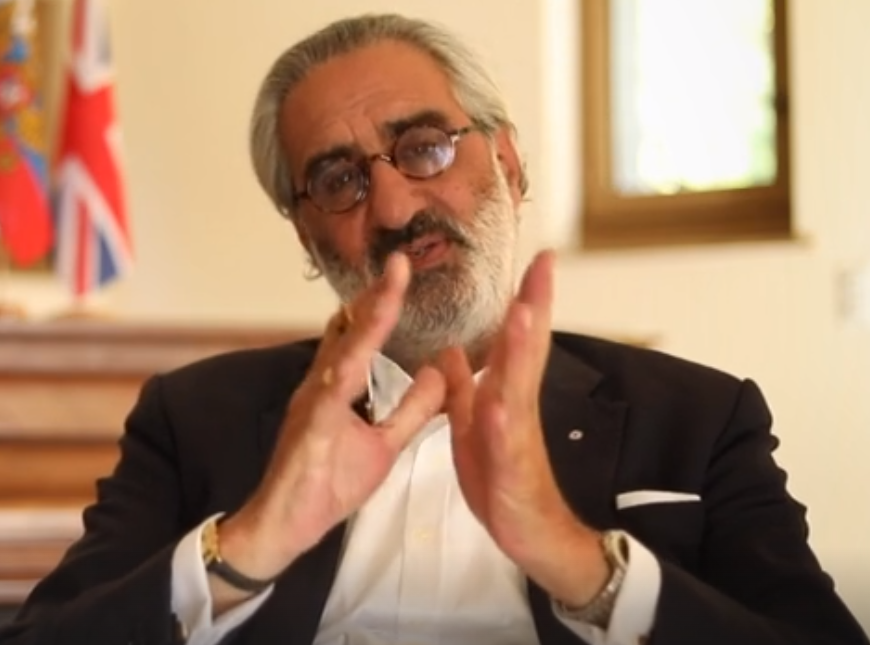
GENEVA — A contentious documentary has sparked international debate. Former Swiss banker Pascal Najadi and health expert Dr. Astrid Stuckelberger are at the forefront. They demand legal action against global figures like Klaus Schwab. Their concern? The controversial use of COVID-19 vaccinations, Najadi has labeled “bioweapon shots.”
The documentary, “Cutting off the Head of the Snake,” is stirring. It examines global entities in Geneva, Switzerland. Najadi uses his financial influence for intense scrutiny. The focus is the World Economic Forum (WEF), co-founded by Schwab and Najadi’s late father. Pascal Najadi’s campaign has rocked political circles. It led to Swiss President Alain Berset’s recent resignation. The trigger was a lawsuit, with Najadi accusing Berset of spreading vaccine misinformation. These allegations complicate ongoing health initiatives.
The film exposes internal conflicts inside the WEF. It discusses Hussain Najadi’s disillusionment leading to his 1980s exit. His exit left Schwab solely responsible. Pascal Najadi now condemns Geneva as a center for ‘democide,’ tarnishing its global reputation. Najadi challenges diplomatic immunity’s legal standing. He calls on Swiss authorities to act against global vaccination advocates. He equates their campaign with biowarfare. The implicated parties include major corporations and individuals. Big Pharma, tech leaders, Bill Gates, and others face accusations of endangering global health.

Najadi makes the story personal, too. He declares himself and his mother as victims, suffering post-vaccine. He demands justice against what he calls ‘democide.’ “It’s for humanity’s sake,” Najadi insists, stressing his appeal’s urgency.
Dr. Stuckelberger, in parallel, notes Geneva’s pervasive sense of dread. This fear extends to the United Nations. She criticizes a silent complicity that obstructs global awareness and action. Attention shifts to Switzerland’s decision to immunize GAVI, backed by Gates. She urges public confirmation through Swiss records.
Calling the vaccine drive a ‘coup d’état,’ Dr. Stuckelberger advocates a global grassroots movement. This movement would counter the current happenings in Geneva. She highlights the need for skepticism in science. It’s crucial for unearthing the truth in this ‘global crime scene.’

The documentary concludes with a call for worldwide awareness and defiance. It’s a stand against injustices by unelected global authorities. Najadi and Stuckelberger vocally seek a societal shake-up. They oppose the status quo, promoting joint efforts to protect humanity from threats brewing in Geneva.
Their message is clear and ominous. Najadi’s closing remarks identify Geneva as the threat’s epicenter. “The snake’s head, present and menacing, is now being cut off,” he cautions. It signals a call for global reflection. A possible disruption looms, aiming for accountability and transparency globally.
This piece reverberates internationally. Beyond just a documentary, it serves as a wake-up call. The allegations, the personal stories, and the political ripples are jarring. They compel us to question, investigate, and understand.
Geneva, a symbol of diplomacy, faces dark accusations. The city stands as a contested space in global health discourse. The voices raised in this documentary won’t be silenced easily. They demand a reassessment of our global health landscape.
The stakes are humanity itself. The players are global giants. The arena? A world grappling with health crises, information wars, and power struggles. “Cutting off the Head of the Snake” is a clarion call. It’s a plea for vigilance, for action, for a new chapter in global accountability.
